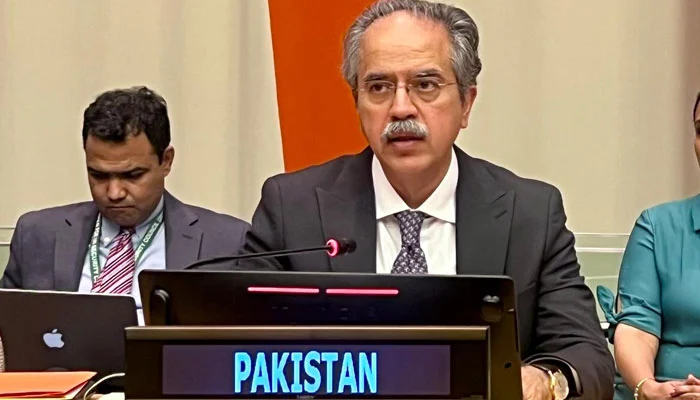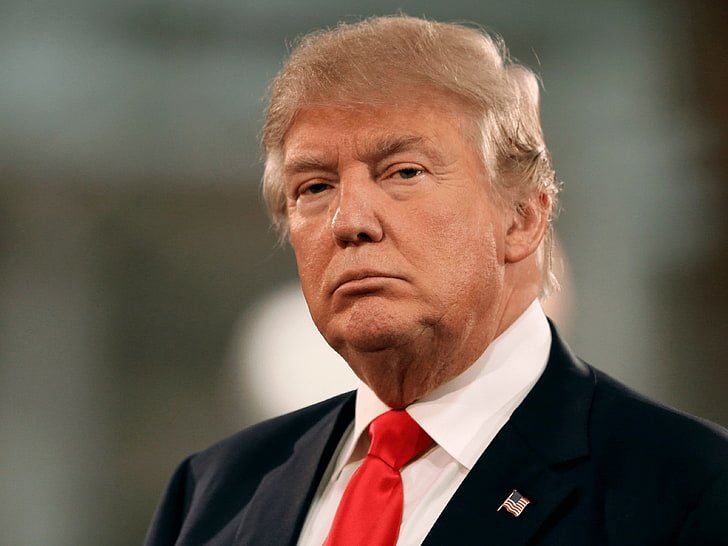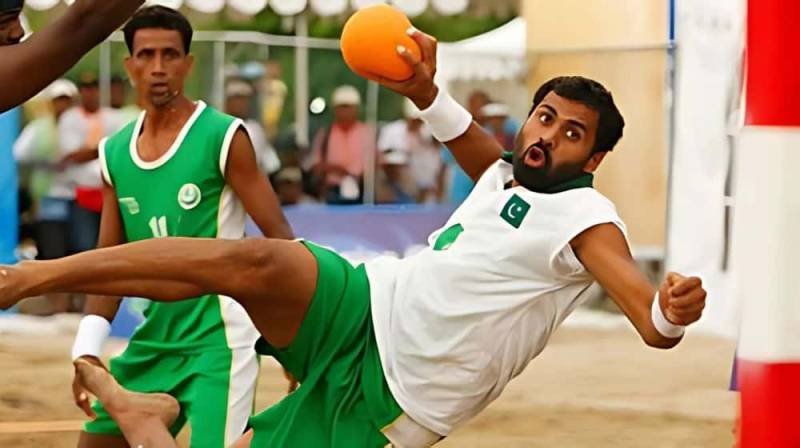Pakistan Assumes Presidency of United Nations Security Council for July 2025, Marking Major Diplomatic Achievement escalating
In a significant development that highlights Pakistan’s growing role on the international stage, the country has officially assumed the presidency of the United Nations Security Council (UNSC) for the month of July 2025. This milestone reflects Pakistan’s commitment to global peace, multilateralism, and its active participation in shaping international diplomacy. The announcement was made by Foreign Minister Ishaq Dar in a statement shared on the social media platform X (formerly Twitter).
This marks Pakistan’s eighth term as a non-permanent member of the UNSC and underlines its consistent contributions toward global stability and cooperation.
A Symbol of Diplomatic Progress
Foreign Minister Ishaq Dar expressed pride in Pakistan’s latest international responsibility, emphasizing that the country takes this role with “humility, conviction, and profound commitment to the UN Charter, international law, and multilateralism.”
Dar added, “Today, Pakistan assumes the Presidency of the UN Security Council for July 2025, during its 8th term (2025–26) as an elected member of the UNSC. We will strive to steer the Security Council towards responsive and effective action grounded in dialogue, diplomacy and peaceful dispute resolution.”
The Foreign Minister also acknowledged that the presidency comes during a critical time when the world is facing multiple armed conflicts, political unrest, and humanitarian challenges. Pakistan aims to play a constructive role in fostering global peace by encouraging diplomatic dialogue and promoting peaceful resolutions through international cooperation.
How the UNSC Presidency Works
The presidency of the UNSC rotates monthly among its 15 members in alphabetical order of the member states’ English names. This month, Pakistan takes over the reins, providing it with an opportunity to influence the global agenda and lead discussions on some of the most pressing international issues.
The United Nations Security Council is regarded as the most powerful body of the UN system. It has the unique authority to make decisions that member states are legally obligated to follow. These decisions can include the imposition of sanctions, authorization of military interventions, and other crucial peacekeeping measures.
Of the 15 members, five are permanent members — the United States, the United Kingdom, China, France, and Russia — each holding veto power. The remaining 10 are non-permanent members elected for two-year terms, distributed geographically. Pakistan began its current term as a non-permanent member in January 2025, making this presidency a significant moment in its tenure.
Pakistan’s Eighth Term on the UNSC
Pakistan has served on the UNSC seven times before, and its current eighth term (2025-2026) highlights the international community’s trust in Islamabad’s diplomatic approach. Over the decades, Pakistan has built a reputation for advocating for peace, disarmament, and support for developing countries in international forums.
Pakistan’s election to the UNSC for 2025–2026 came with widespread support from members of the General Assembly, reflecting confidence in its ability to contribute constructively to global governance.
Vice-Chair of the Counter-Terrorism Committee
In addition to assuming the presidency of the UNSC this month, Pakistan was recently named the vice-chair of the Council’s Counter-Terrorism Committee. This committee is responsible for overseeing the implementation of Resolution 1373 (2001), which was adopted in the aftermath of the September 11 attacks and focuses on strengthening international cooperation to combat terrorism.
As vice-chair, Pakistan will help supervise the committee’s work, ensuring that member states comply with their obligations to suppress financing of terrorism, deny safe havens to terrorists, and enhance legal and security frameworks to prevent terrorist acts.
This role complements Pakistan’s broader counter-terrorism efforts and shows its willingness to work with the global community in fighting this menace.
Ambassador Kamran Akhtar’s Parallel Victory at UNIDO
In another significant achievement for Pakistan’s diplomacy, Ambassador Kamran Akhtar, the country’s Permanent Representative to the United Nations in Vienna, was elected as the President of the 53rd session of the Industrial Development Board (IDB) of the United Nations Industrial Development Organization (UNIDO).
This marks the first time that a Pakistani diplomat has assumed this position, further elevating Pakistan’s standing within international organizations focused on development.
UNIDO and Pakistan’s Strategic Partnership
UNIDO plays a key role in promoting inclusive and sustainable industrial development across the globe. It supports developing countries, least developed countries (LDCs), and Small Island Developing States (SIDS) through programs aimed at improving infrastructure, increasing productivity, and encouraging environmentally sound industrialization.
Ambassador Akhtar thanked all UNIDO member states for placing their trust in Pakistan. He reiterated his commitment to enhancing the organization’s impact, particularly in countries most in need of industrial support.
“The election manifests the trust reposed in Pakistan by the UNIDO Member States,” the Foreign Office said in a statement. “Like all Vienna-based international organizations, Pakistan maintains an active diplomatic profile at UNIDO and remains committed to the organization’s core mandate, which is inclusive and sustainable industrial development.”
Join Pakistan Army as a Nurse: Registration Begins! power 7
Read This Article
Ongoing and Planned Projects Worth Over €350 Million
According to the Foreign Office, Pakistan currently maintains one of the largest portfolios with UNIDO. Several ongoing and planned projects are valued at over €350 million and span a wide range of sectors critical to Pakistan’s economic growth and social development.
These include:
-
Textile and leather industries: Providing technical assistance and infrastructure upgrades to make these industries more competitive globally.
-
Fisheries and food safety: Introducing modern techniques and safety standards to improve export quality and market access.
-
Climate action and renewable energy: Promoting green technologies and reducing carbon footprints in local industries.
-
Rural development: Initiatives such as PAIDAR (Project for Agri-Industrial Development) and PAFAID (Project for Agri-Food and Agro-Industry Development) have had transformative impacts on poverty alleviation and job creation in rural areas.
These projects are also aligned with Pakistan’s own Vision 2025 and Sustainable Development Goals (SDGs), showcasing a coherent national strategy for sustainable economic progress.
Global Praise for Pakistan’s Contributions
UNIDO’s Director-General lauded Pakistan’s contributions to the organization and congratulated Ambassador Akhtar on his election. This recognition serves as an endorsement of Pakistan’s proactive engagement in international development and diplomacy.
Observers have noted that Pakistan’s growing leadership role in multilateral institutions such as the UNSC and UNIDO signals a shift towards a more dynamic foreign policy strategy. Islamabad is no longer a passive participant but is actively shaping agendas and leading critical discussions on peace, development, and sustainability.
Challenges and Opportunities Ahead
While Pakistan’s presidency of the UNSC presents an opportunity to influence international policy, it also comes with challenges. The global security environment remains volatile, with ongoing conflicts in Gaza, Ukraine, Sudan, and various parts of Africa and the Middle East. Rising tensions among major powers also test the Council’s ability to act decisively.
Pakistan will be expected to guide discussions in an impartial, effective manner that prioritizes peace and cooperation over confrontation. With its longstanding stance on peaceful conflict resolution and its history of contributions to UN peacekeeping missions, Pakistan is well-positioned to advocate for constructive dialogue.
Promoting Peace, Multilateralism, and Justice
The Foreign Minister’s remarks underlined that Pakistan would use its time at the helm of the UNSC to promote core values of the UN Charter. These include respect for sovereignty, peaceful resolution of disputes, upholding international law, and protecting human rights.
Pakistan’s presidency also comes as the UNSC is under pressure to reform and become more representative of the modern world. While such reforms are long-term goals, Islamabad’s approach during its presidency could contribute to restoring faith in the UNSC’s ability to tackle global challenges effectively and fairly.
A Moment of Pride for Pakistan
Assuming the presidency of the United Nations Security Council is a prestigious honor for any country. For Pakistan, this moment represents not just a diplomatic triumph, but also an affirmation of its capabilities, leadership, and international credibility.
From combating terrorism and contributing to peacekeeping operations to supporting sustainable development through UNIDO, Pakistan is playing a proactive role on the world stage. The twin achievements — leading the UNSC and presiding over the UNIDO Board — reflect the international community’s confidence in Pakistan’s diplomacy and development vision.
As the month of July 2025 unfolds, the spotlight remains on Pakistan to lead with wisdom, fairness, and a commitment to global peace.
Pakistan Assumes Presidency of United Nations Security Council for July 2025, Marking Major Diplomatic Achievement
In a significant development that highlights Pakistan’s growing role on the international stage, the country has officially assumed the presidency of the United Nations Security Council (UNSC) for the month of July 2025. This milestone reflects Pakistan’s commitment to global peace, multilateralism, and its active participation in shaping international diplomacy. The announcement was made by Foreign Minister Ishaq Dar in a statement shared on the social media platform X (formerly Twitter).
This marks Pakistan’s eighth term as a non-permanent member of the UNSC and underlines its consistent contributions toward global stability and cooperation.
A Symbol of Diplomatic Progress
Foreign Minister Ishaq Dar expressed pride in Pakistan’s latest international responsibility, emphasizing that the country takes this role with “humility, conviction, and profound commitment to the UN Charter, international law, and multilateralism.”
Dar added, “Today, Pakistan assumes the Presidency of the UN Security Council for July 2025, during its 8th term (2025–26) as an elected member of the UNSC. We will strive to steer the Security Council towards responsive and effective action grounded in dialogue, diplomacy and peaceful dispute resolution.”
The Foreign Minister also acknowledged that the presidency comes during a critical time when the world is facing multiple armed conflicts, political unrest, and humanitarian challenges. Pakistan aims to play a constructive role in fostering global peace by encouraging diplomatic dialogue and promoting peaceful resolutions through international cooperation.
How the UNSC Presidency Works
The presidency of the UNSC rotates monthly among its 15 members in alphabetical order of the member states’ English names. This month, Pakistan takes over the reins, providing it with an opportunity to influence the global agenda and lead discussions on some of the most pressing international issues.
The United Nations Security Council is regarded as the most powerful body of the UN system. It has the unique authority to make decisions that member states are legally obligated to follow. These decisions can include the imposition of sanctions, authorization of military interventions, and other crucial peacekeeping measures.
Of the 15 members, five are permanent members — the United States, the United Kingdom, China, France, and Russia — each holding veto power. The remaining 10 are non-permanent members elected for two-year terms, distributed geographically. Pakistan began its current term as a non-permanent member in January 2025, making this presidency a significant moment in its tenure.
Pakistan’s Eighth Term on the UNSC
Pakistan has served on the UNSC seven times before, and its current eighth term (2025-2026) highlights the international community’s trust in Islamabad’s diplomatic approach. Over the decades, Pakistan has built a reputation for advocating for peace, disarmament, and support for developing countries in international forums.
Pakistan’s election to the UNSC for 2025–2026 came with widespread support from members of the General Assembly, reflecting confidence in its ability to contribute constructively to global governance.
Vice-Chair of the Counter-Terrorism Committee
In addition to assuming the presidency of the UNSC this month, Pakistan was recently named the vice-chair of the Council’s Counter-Terrorism Committee. This committee is responsible for overseeing the implementation of Resolution 1373 (2001), which was adopted in the aftermath of the September 11 attacks and focuses on strengthening international cooperation to combat terrorism.
As vice-chair, Pakistan will help supervise the committee’s work, ensuring that member states comply with their obligations to suppress financing of terrorism, deny safe havens to terrorists, and enhance legal and security frameworks to prevent terrorist acts.
This role complements Pakistan’s broader counter-terrorism efforts and shows its willingness to work with the global community in fighting this menace.
Ambassador Kamran Akhtar’s Parallel Victory at UNIDO
In another significant achievement for Pakistan’s diplomacy, Ambassador Kamran Akhtar, the country’s Permanent Representative to the United Nations in Vienna, was elected as the President of the 53rd session of the Industrial Development Board (IDB) of the United Nations Industrial Development Organization (UNIDO).
This marks the first time that a Pakistani diplomat has assumed this position, further elevating Pakistan’s standing within international organizations focused on development.
UNIDO and Pakistan’s Strategic Partnership
UNIDO plays a key role in promoting inclusive and sustainable industrial development across the globe. It supports developing countries, least developed countries (LDCs), and Small Island Developing States (SIDS) through programs aimed at improving infrastructure, increasing productivity, and encouraging environmentally sound industrialization.
Ambassador Akhtar thanked all UNIDO member states for placing their trust in Pakistan. He reiterated his commitment to enhancing the organization’s impact, particularly in countries most in need of industrial support.
“The election manifests the trust reposed in Pakistan by the UNIDO Member States,” the Foreign Office said in a statement. “Like all Vienna-based international organizations, Pakistan maintains an active diplomatic profile at UNIDO and remains committed to the organization’s core mandate, which is inclusive and sustainable industrial development.”
Ongoing and Planned Projects Worth Over €350 Million
According to the Foreign Office, Pakistan currently maintains one of the largest portfolios with UNIDO. Several ongoing and planned projects are valued at over €350 million and span a wide range of sectors critical to Pakistan’s economic growth and social development.
These include:
-
Textile and leather industries: Providing technical assistance and infrastructure upgrades to make these industries more competitive globally.
-
Fisheries and food safety: Introducing modern techniques and safety standards to improve export quality and market access.
-
Climate action and renewable energy: Promoting green technologies and reducing carbon footprints in local industries.
-
Rural development: Initiatives such as PAIDAR (Project for Agri-Industrial Development) and PAFAID (Project for Agri-Food and Agro-Industry Development) have had transformative impacts on poverty alleviation and job creation in rural areas.
These projects are also aligned with Pakistan’s own Vision 2025 and Sustainable Development Goals (SDGs), showcasing a coherent national strategy for sustainable economic progress.
Global Praise for Pakistan’s Contributions
UNIDO’s Director-General lauded Pakistan’s contributions to the organization and congratulated Ambassador Akhtar on his election. This recognition serves as an endorsement of Pakistan’s proactive engagement in international development and diplomacy.
Observers have noted that Pakistan’s growing leadership role in multilateral institutions such as the UNSC and UNIDO signals a shift towards a more dynamic foreign policy strategy. Islamabad is no longer a passive participant but is actively shaping agendas and leading critical discussions on peace, development, and sustainability.
Challenges and Opportunities Ahead
While Pakistan’s presidency of the UNSC presents an opportunity to influence international policy, it also comes with challenges. The global security environment remains volatile, with ongoing conflicts in Gaza, Ukraine, Sudan, and various parts of Africa and the Middle East. Rising tensions among major powers also test the Council’s ability to act decisively.
Pakistan will be expected to guide discussions in an impartial, effective manner that prioritizes peace and cooperation over confrontation. With its longstanding stance on peaceful conflict resolution and its history of contributions to UN peacekeeping missions, Pakistan is well-positioned to advocate for constructive dialogue.
Promoting Peace, Multilateralism, and Justice
The Foreign Minister’s remarks underlined that Pakistan would use its time at the helm of the UNSC to promote core values of the UN Charter. These include respect for sovereignty, peaceful resolution of disputes, upholding international law, and protecting human rights.
Pakistan’s presidency also comes as the UNSC is under pressure to reform and become more representative of the modern world. While such reforms are long-term goals, Islamabad’s approach during its presidency could contribute to restoring faith in the UNSC’s ability to tackle global challenges effectively and fairly.
A Moment of Pride for Pakistan
Assuming the presidency of the United Nations Security Council is a prestigious honor for any country. For Pakistan, this moment represents not just a diplomatic triumph, but also an affirmation of its capabilities, leadership, and international credibility.
From combating terrorism and contributing to peacekeeping operations to supporting sustainable development through UNIDO, Pakistan is playing a proactive role on the world stage. The twin achievements — leading the UNSC and presiding over the UNIDO Board — reflect the international community’s confidence in Pakistan’s diplomacy and development vision.




